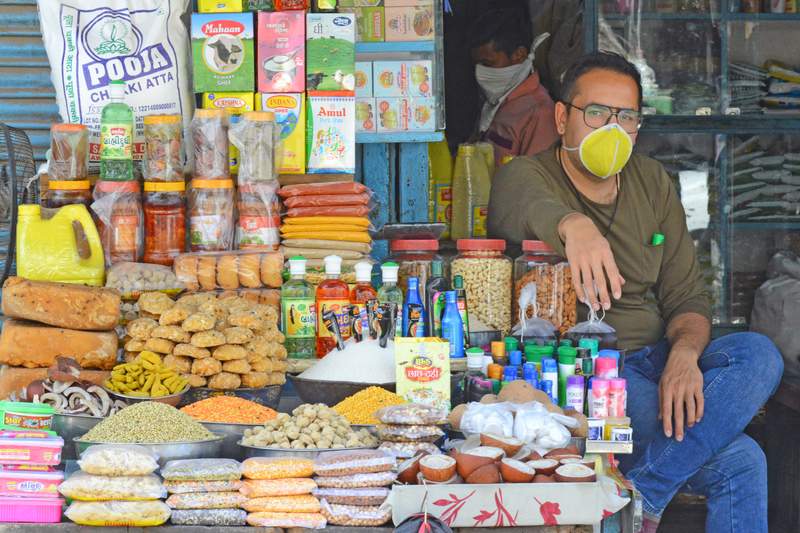* Critics draw parallels with deadly drug war approach
* Government's health strategy unwise - ex-minister
* Residents of Manila's rundown districts fear harsh action
* Armed police in camouflage enforce lockdown
By Karen Lema
MANILA, July 17 (Reuters) - At the peak of the Philippines'
war on drugs, people in the rundown neighbourhoods of Navotas in
the capital Manila grew used to police knocking on doors, or
bursting into the homes of drug suspects - who often wound up
dead.
Now, many residents of the Navotas area, which has been
particularly badly hit by the coronavirus, fear another harsh
police campaign after the government said officials will visit
homes of patients with mild or no symptoms and escort them to
isolation centres.
Some Filipinos have labelled the plan "Tokhang 2", calling
it the sequel to a police-led anti-drug campaign that became
synonymous with thousands of killings.
"We are afraid of the house-to-house. We don't know what the
police and soldiers will do to us," said Crisanto dela Cruz, a
46-year-old pedicab driver in Navotas.
"At the same time, we are afraid of getting infected because
we are always outside."
Infections have tripled in the Philippines since June 1 and
the interior ministry announced this week that health officials,
with the help of local authorities and the police, will move
people suffering from COVID-19 from their homes to isolation
centres. It has urged neighbours to report potential cases of
infected people who are evading authorities. President Rodrigo Duterte's spokesman, Harry Roque, stressed
the home visits will be led by local health workers.
In a statement, he said "police presence is merely to
provide support or assistance in the transport of patients".
But Roque also said anyone likely to spread the virus could
be forcibly removed "if need be".
"We can still compel them but I don't think it will be in
the nature as if they are being treated as criminals", he told
CNN Philippines.
The United Nations has said at least 8,663 people, and
possibly many more, were killed in the Philippines after Duterte
launched a war on drugs in 2016. It said the killings took place
amid "near impunity" for police and incitement to violence by
top officials. Most of the deaths were in poor, run-down areas like those
in Navotas.
Police say their actions in the anti-drug campaign have been
lawful and that deaths occurred in shootouts with dealers
resisting arrest.
The coronavirus strategy was announced in a week when the
Philippines recorded Southeast Asia's biggest daily jump in
deaths from the disease.
While much of East Asia appears to have COVID-19 under
control, the Philippines has recorded nearly 36% of its
infections and 23% of its 1,660 deaths in the past two weeks. In
the region, only Indonesia's death toll is climbing faster.
'FASCIST ACTIONS'
The government has defended the house-to-house approach,
saying that infected people with insufficient space to
quarantine themselves at home should be moved to isolation
centres.
But opposition senators and human rights groups say the
campaign is from the playbook of the drug war.
Senator Franklin Drilon said police had been enforcing a
lockdown aggressively, and there was no need for "fascist
actions to demand submission".
The National Union of People's Lawyers called it "another
tool to sow fear in our communities".
"With a government that has emboldened its own uniformed
personnel to violate human rights with impunity, how can we be
sure that the police will not abuse this new power," it said.
A better approach, say critics, is to improve
contact-tracing and testing, with just 0.9% of the population
tested so far. Roughly two-thirds of the tests followed the
relaxation of restrictions on June 1 to try to rescue the
economy.
Navotas has since seen cases grow from 286 at end May to 906
as of July 16, prompting authorities to reimpose restrictions,
with armed police in camouflage deployed to keep people indoors
and threaten violators with fines.
"It's not martial law, there's no need for police to go
house-to-house," said Arvin Provito, a Navotas tricycle driver.
"What they should do is do house-to-house testing."
Former health minister Esperanza Cabral said the government
should rethink its approach.
"As they say, give a carpenter a hammer and all he will see
are nails," she said. "As for the people, they've been so used
to being treated as nails they're naturally scared of anyone who
has a hammer."
